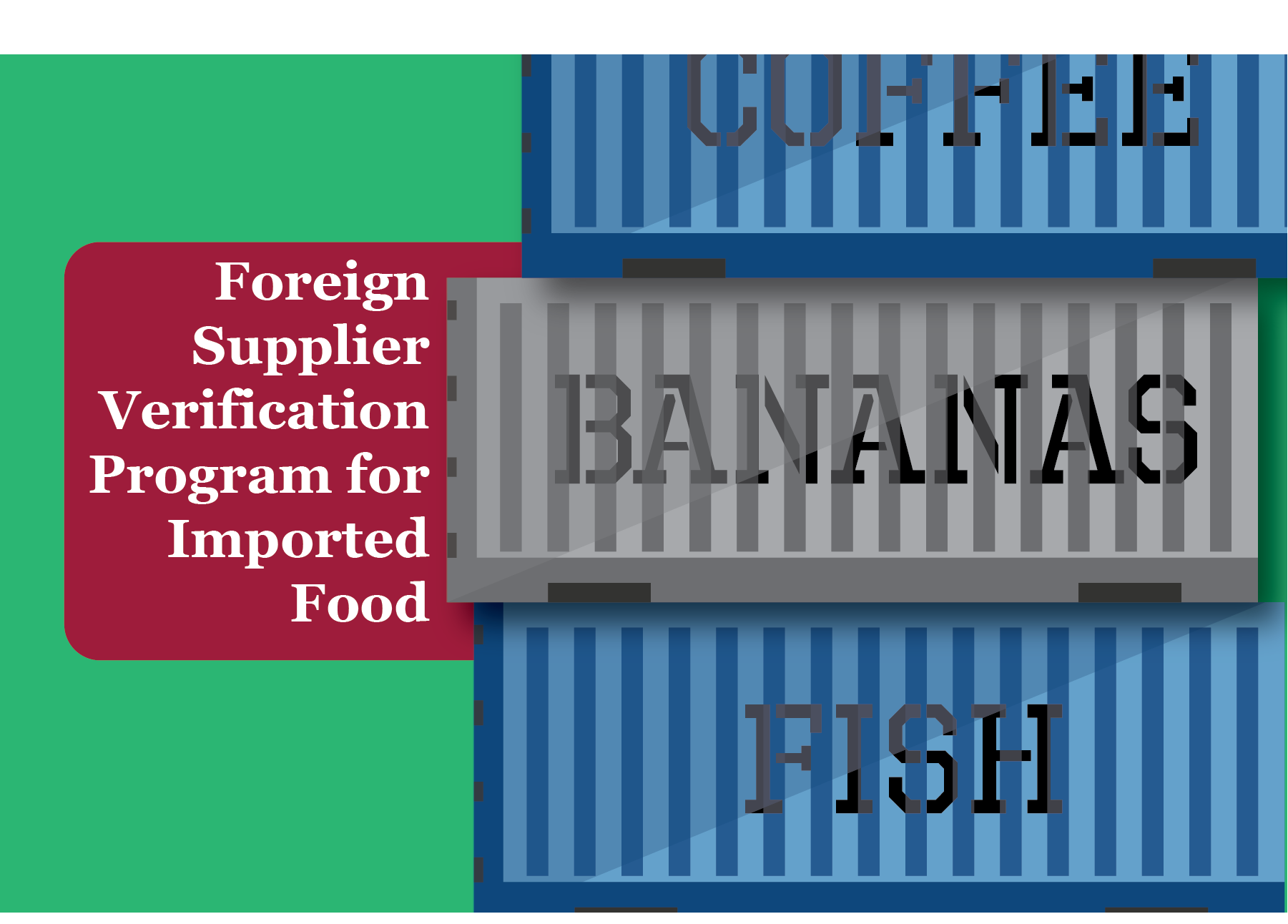With FDA’s Food Safety and Modernization Act (FSMA), importers were given greater responsibility for ensuring that imported foods are safe. The Foreign Supplier Verification Programs (FSVP) for Importers of Food for Humans and Animals is a program that requires importers to perform activities that would be familiar to food manufacturers in the U.S.: determine foreseeable hazards (i.e., biological, chemical, physical hazards) with each food, conduct supplier verification activities (e.g., regular on-site audits, sampling and testing, review of supplier’s records), and perform corrective actions. Ultimately, FSVP aims to verify that food imported into the United States has been produced in a manner that meets applicable U.S. safety standards. The first major compliance date for FSVP was May 30, 2017. Most importers of food are past the compliance date and must have an FSVP.
On July 30, 2019, the first Warning Letter was issued to an importer for failure to comply with requirements of the FSVP regulation (21 CFR 1 Subpart L). The letter noted that the FDA inspection revealed the importer did not appear to be familiar with FSVP requirements and did not develop a FSVP for a supplier of a food that was contaminated with Salmonella. The repercussions for not correcting violations to FSVP requirements may cause food to be placed in Detention Without Physical Examination when entering the U.S.
In order to ensure that they comply with FSVP requirements, importers must ensure and document that the imported food was produced in compliance with processes and procedures that would provide the same level of public health protection as required under the hazard analysis and risk-based preventative controls for U.S. food manufacturers. To achieve this, the importer must have a FSVP for each food that they plan to import. The importer should also re-evaluate the supplier’s performance and risk of the imported food every 3 years, or when new information prompts an earlier re-evaluation. Importers can rely on analyses, evaluations, and activities performed by other entities, as long as they review and assess the corresponding documentation.
One major change for importers is that they must verify that imported food is not adulterated and not misbranded with respect to food allergen labeling. Food for humans that contains a major food allergen (i.e., milk, egg, fish, crustacean, shellfish, tree nuts, wheat, peanuts, and soybeans) must meet the labeling requirements set forth in section 403(w) of the FD&C Act.
There are modifications to the FSVP requirements for very small importers (≤$1M for human food annual sales) and importers of food from certain small suppliers (e.g., farms with ≤ $25,000 in annual produce sales, shell egg produces with ≤3,000 laying hens). Additionally, there are foods not covered by FSVP. These include food imported for processing and future export, some products regulated by USDA at time of importation, and certain alcoholic beverages. In order to provide importers guidance about whether they need to comply with FSVP requirements or if they meet modified requirements, FDA has released a draft guidance document, “Foreign Supplier Verification Programs for Importers of Food for Humans and Animals”. FDA has also released a succinct “Am I subject to FSVP?” decision chart.
Do you need assistance in understanding whether you comply with FDA regulations? Please contact us at (248) 987-4497 or info@emmainternational.com.





